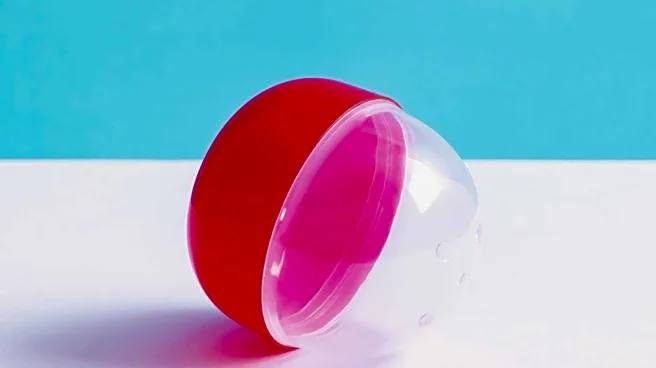What's Happening?
A recent article highlights the personal and financial benefits of switching to menstrual cups, a reusable alternative to traditional sanitary products. The author shares their experience of saving approximately £120 annually by using a menstrual cup instead of disposable tampons and pads. Menstrual cups, made from medical-grade silicone, offer a sustainable option that reduces waste and exposure to potentially harmful chemicals found in some disposable products. The article emphasizes the ease of use and convenience of menstrual cups, which can be sterilized and reused for years, making them a cost-effective and environmentally friendly choice.
Why It's Important?
The adoption of menstrual cups can significantly impact women's financial and environmental well-being. By reducing the need for disposable products, women can save money and decrease their environmental footprint. This shift also addresses the 'pink tax,' where female-targeted products are often priced higher than their male counterparts. The use of menstrual cups aligns with broader societal trends towards sustainability and eco-conscious living. As awareness grows, more women may opt for reusable menstrual products, potentially influencing market dynamics and encouraging manufacturers to innovate in this space.
What's Next?
As awareness of the benefits of menstrual cups increases, it is likely that more women will consider making the switch. This could lead to a rise in demand for reusable menstrual products, prompting manufacturers to expand their offerings and improve product accessibility. Additionally, there may be increased advocacy for policies that support the affordability and availability of sustainable menstrual products, further reducing the financial burden on women. Educational campaigns and community initiatives could play a crucial role in promoting the adoption of menstrual cups and other eco-friendly alternatives.
Beyond the Headlines
The shift towards menstrual cups also raises important discussions about menstrual health education and access to affordable products. It highlights the need for comprehensive education on menstrual health and the benefits of sustainable options. Furthermore, it underscores the importance of addressing period poverty, ensuring that all individuals have access to safe and affordable menstrual products. This movement could lead to broader societal changes in how menstrual health is perceived and addressed, promoting gender equality and reducing stigma around menstruation.









